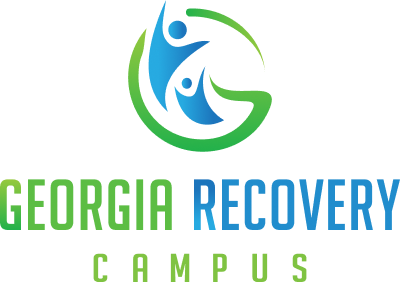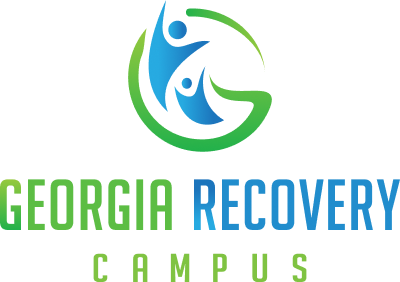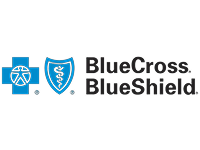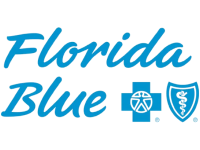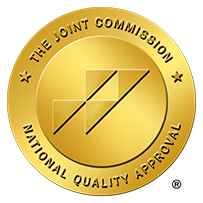
PTSD Treatment in Georgia
Comprehensive Care for Post-Traumatic Stress Disorder
Georgia Recovery Campus is a trusted treatment center in Georgia with a reputation for helping people confront and overcome a range of mental health issues, including PTSD.
Backed by a top-class recovery team, we integrate a whole-person, holistic approach with evidence-based treatment plans, programs, and therapies designed to enrich and empower patients as they recover. We also emphasize personalized support and take great pride in providing a pristine, amenities-rich campus with a discrete, private, and nurturing environment where you can become your best self.
Are you struggling with PTSD or wondering if you might be experiencing symptoms? Call Georgia Recovery Campus today at (478) 216-1110 or contact us online and learn more about PTSD treatment in Georgia.
Symptoms of PTSD
Feeling afraid, anxious, or uneasy during and after traumatic situations is natural and part of the body’s “fight-or-flight” response meant to help us avoid or respond to potential danger. These post-trauma feelings or reactions can vary from person to person and, for many, will typically go away over time. People who continue to experience these feelings, especially if they persist for more than one month and interfere with their daily lives, are typically diagnosed with PTSD.
When diagnosing PTSD, medical professionals will look for the following types of symptoms:
- Re-experiencing Symptoms: Individuals with PTSD may involuntarily re-experience the traumatic event through intrusive and distressing memories, nightmares, or flashbacks. Reminders of the trauma can trigger these re-experiencing symptoms and can lead to intense emotional distress.
- Avoidance Symptoms: People with PTSD often go to great lengths to avoid things that remind them of the traumatic event, including places, people, activities, or situations that may trigger distressing memories or emotions. Avoidance can cause people to change their routines and interfere with daily functioning and social relationships.
- Arousal and Reactivity Symptoms: Individuals with PTSD may experience heightened arousal and reactivity to perceived threats or triggers. This can manifest as hypervigilance, exaggerated startle response, difficulty concentrating, irritability, or sleep disturbances.
- Cognition and Mood Symptoms: PTSD can lead to adverse changes in thoughts, beliefs, and emotions. Individuals may develop negative beliefs about themselves, others, or the world, as well as guilt, shame, or detachment. They may also have trouble remembering aspects of the traumatic event or have distorted perceptions of reality.
Challenges of Living With PTSD
Living with PTSD can present significant challenges that impact various aspects of a person’s life:
- Interpersonal Relationships: PTSD can strain relationships with family members, friends, and romantic partners. Difficulties in communication, emotional detachment, and avoidance behaviors may hinder intimacy and connection.
- Occupational Functioning: Symptoms of PTSD, such as intrusive thoughts, hypervigilance, and difficulty concentrating, can impair work performance and productivity. Individuals may struggle to maintain employment or experience frequent absenteeism.
- Physical Health: Chronic stress and heightened arousal associated with PTSD can contribute to physical health problems, including cardiovascular issues, gastrointestinal disturbances, and chronic pain conditions.
- Mental Health Comorbidities: PTSD commonly co-occurs with other mental health conditions, such as depression, anxiety disorders, and substance use disorders. These comorbidities can complicate treatment and exacerbate symptoms of PTSD.
- Quality of Life: The pervasive impact of PTSD on daily functioning, emotional well-being, and overall quality of life can lead to feelings of hopelessness, helplessness, and despair. Without effective treatment, individuals may struggle to find meaning and purpose.

From our updated facilities to themed residential villas, every detail matters.


walking With You Through Your Journey
Recovery Backed By Science
-
TransparencyWe understand how difficult recovery is. We work one on one with you every step of the way to ensure we are helping you make the necessary changes to obtain the life you deserve.
-
Person-FocusedWhen you come to our facility, you are not only getting a beautiful campus and quality services, but you are also getting a team who truly cares about your recovery.
-
Top-Class Recovery TeamOur dedicated, experienced, and compassionate team of experts is here for you every step of the way. We have the tools, resources, and knowledge to help you on your journey.
-
Customized TreatmentAt Georgia Recovery Campus we treat the entire mind, body, and spirit. When you come to us, we work one on one with you to select the track that would be most beneficial to you and your goals.

-
 “GRC saved my life. Literally. The campus is beautiful and all staff give you a therapeutic experience. Big Mike keeps the place energetic, wholesome, and loving. I am excited about life now and living sober.”- Tyler C.
“GRC saved my life. Literally. The campus is beautiful and all staff give you a therapeutic experience. Big Mike keeps the place energetic, wholesome, and loving. I am excited about life now and living sober.”- Tyler C.

Frequently Asked Questions
How Long Does PTSD Treatment Typically Last?
The length of PTSD treatment varies depending on the severity of your symptoms and your progress in therapy. Generally, treatment can last anywhere from a few months to longer. Our team will work with you to develop a treatment plan with a realistic timeline for achieving your recovery goals.
What if I Have Co-Occurring Mental Health Issues or Substance Abuse?
Our program is designed to address co-occurring mental health conditions and substance abuse alongside PTSD. We understand the complex nature of these issues and tailor our treatment plans to address all aspects of your recovery.
What Happens After I Complete Treatment?
We believe in providing ongoing support after you complete our program. We offer aftercare planning to help you transition to daily life and prevent relapse. This might include connecting you with community or group therapy resources or developing a relapse prevention plan.


We Take Your Insurance

